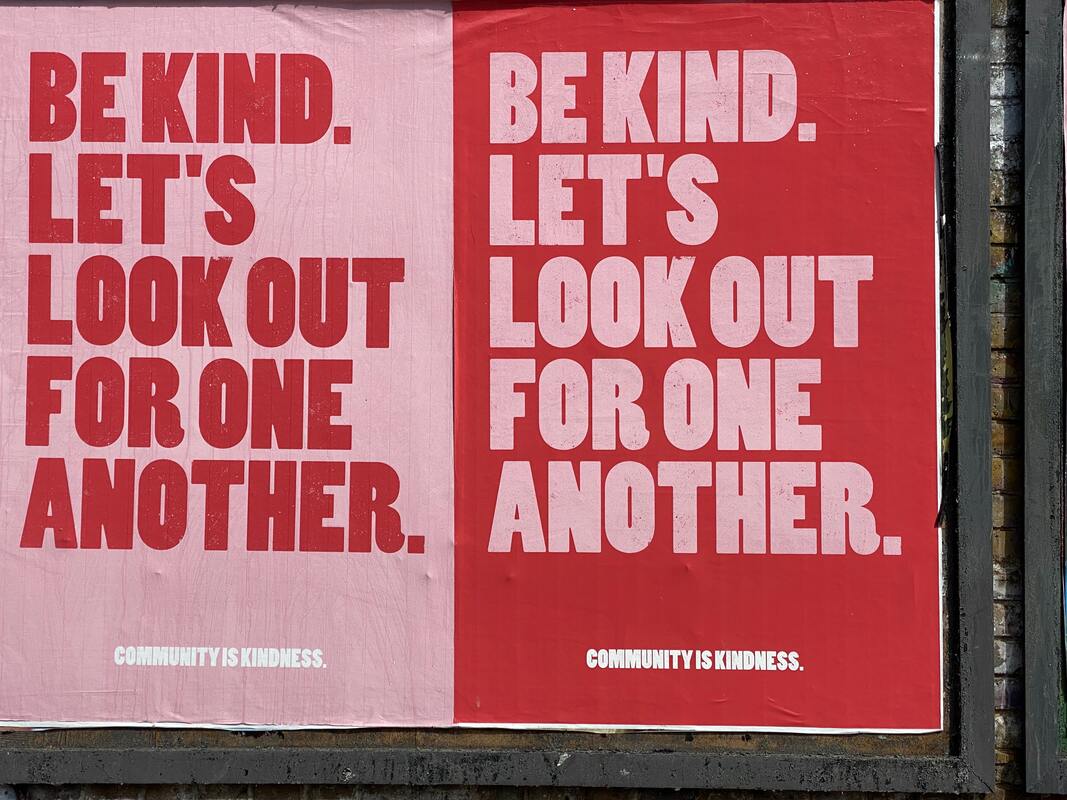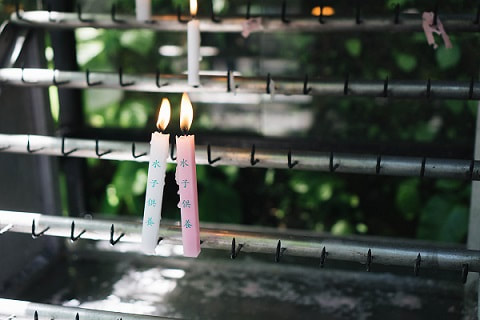|
By: Maria Servold EPLA Editor In the core value series, the editors of Hope Blooms seek to show the heart of the EPLA by describing our core values. We encourage you to remember the children we’ve lost and stand with families suffering from miscarriage. Encouraging Community One of the most common feelings you may experience after the loss of a child is loneliness. It can feel like no one understands your pain and emptiness and that there is no one to walk beside you through your grief. What we need most in these moments is community - people around us who can love, support, and guide us through the incredibly trying time after a miscarriage. These connections can be personal, which tap into another core value of ours: loving people. But support after a miscarriage should also come from the community at large. This is partially why the EPLA was created: to build online and real world communities for families suffering from miscarriage. Not that long ago, there were very few resources for women after miscarriages, particularly early ones. By creating a place to discuss miscarriage, we encourage the greater community to better understand what it is and how to help. Through things like this blog, attendance at loss conferences, participation in walks of remembrance, and distribution of resources, the EPLA seeks to engage and encourage people from around the world in this topic. By bringing attention to early pregnancy loss, we hope we can destigmatize miscarriage, thereby helping women who suffer them feel accepted and loved. When miscarriage is no longer a taboo subject, those who have suffered from it can come out into the light and find others who have gone through the same thing. When women and families come together and support each other, a community is born. Maria Servold is an Editor at the EPLA, Assistant Director of the Herbert H. Dow II Program in American Journalism, and Lecturer in Journalism at Hillsdale College.
0 Comments
By: Maria Servold EPLA Editor
Today, thousands of people from across the country will gather in Washington, D.C., to march in support of the unborn. An annual event since 1974, the massive demonstration often becomes a political and contentious talking point, but at its core, it is a peaceful statement affirming that life begins in the womb. The march is a powerful statement that is consistent with the Early Pregnancy Loss Association’s core values, which include affirming life. We believe that life begins at conception, which means that any baby lost to miscarriage or ectopic pregnancy was a human life and is worth honoring and remembering. Women who are told that their miscarried child “wasn’t really a baby yet” or “wasn’t really alive yet” are not given the dignity they or their babies deserve. By recognizing the life of a baby that was miscarried, we honor both the child and the mother, who carried and cherished that life. Maria Servold is an Editor at the EPLA, Assistant Director of the Herbert H. Dow II Program in American Journalism, and Lecturer in Journalism at Hillsdale College By: Emily Carrington EPLA Founder and President Yesterday Tommy’s National Centre for Miscarriage Research (Tommy’s) published the findings from the “largest ever study into the psychological impact of early-stage pregnancy loss.” Notably, this study found that “women experience high levels of post-traumatic stress, anxiety and depression after early pregnancy loss. Distress declines over time but remains at clinically important levels at nine months.” These findings from this important study helps us to start understanding the emotional and psychological effects of miscarriage. To learn more about PTSD and other psychological effects following pregnancy loss visit their blog. Today we highlight Tommy’s on our blog because their work is vital to the overall work of the pregnancy loss community. What are they about? Tommy’s “fund[s] research into miscarriage, stillbirth and premature birth, and provide[s] pregnancy health information to parents. [They] believe it is unacceptable that one in four women lose a baby during pregnancy or birth. [They] want every parent to have the best possible pregnancy outcomes and take home happy, healthy babies.” In addition to leading the way in miscarriage research, they provide resources to and support to families experiencing early pregnancy loss. Their services include:
How Tommy’s Work Supports the Work of EPLA Over the last few weeks we have been sharing EPLA’s core values. Research organizations like Tommy’s allow us to better fulfill our mission and act according to our core values. As we learn more about the needs of women and families following loss, we will be better able to affirm life, bear burdens, love people, encourage community, and grieve together. Even though Tommy’s is located in the UK, research gives us the tools to work within our own community. EPLA works closely with medical professionals, counselors, and social workers. We also work to serve parents by distributing important information and resources following early loss. This research informs our own work as we work to serve you. If you are not familiar with Tommy’s, we encourage you to visit their website and follow them on Facebook. The more we all know about early pregnancy loss, the more we are able to serve and love each other through the grief. Emily Carrington is a freelance writer, wife, mother, and founder of the EPLA.
By: Nick Carrington EPLA Editor In the core value series, the editors of Hope Blooms seek to show the heart of the EPLA by describing our core values. We encourage you to remember the children we’ve lost and stand with families suffering from miscarriage. Loving People In the last post about core values, we discussed bearing burdens by addressing physical and day-to-day needs. But loss families obviously have more than physical needs after a miscarriage: they struggle through emotional turmoil as well. The EPLA also aims to address these emotional needs of loss families by loving them. Loss families often struggle with anger, confusion, frustration, and sorrow, unable to make sense of the tragedy. They feel the weight of losing a child, but the culture around them does not always affirm the magnitude of that loss. This disconnect can cause a hardening of the heart as families try to cope with their grief. At the EPLA, we aspire to come alongside families by affirming their grief and validating their emotions. We understand that suffering families will feel and react differently, and the EPLA tries to meet the varying emotional needs of each one. How Do We Love Others? As individuals, we can love others by listening before we speak, responding empathetically, and showing respect for both the family and their lost child. We should not seek to “fix” the situation as if our words were magic. More often than not, loss families need someone to listen to their pain and cry alongside them. When we speak unwisely without listening, we trivialize the tragedy, twisting the knife a little more. Grieving families may be concerned that others will forget about their miscarried little one, and emotionally, they are uplifted when others remember their son or daughter. In the immediate aftermath of a miscarriage, we can love families by affirming they have lost a child. As time passes, we can re-affirm this truth through gifts of remembrance, asking about the child around difficult seasons, and using the child’s name, if applicable. Loss families have extensive and sometimes intensive emotional needs as they grieve a miscarriage. By being present, listening, and validating the pain of loss parents, we may provide oxygen to a family gasping for air. The EPLA encourages these kinds of responses and asks that we as a culture support the grieving through loving, nurturing, and respectful responses. Nick Carrington is an Editor for the EPLA and Assistant Professor of Professional Writing at Cedarville University.
By: Clara Meli I took a deep breath and began to rethink what I was about to do. If I asked this, would I be an insensitive daughter? But, if I didn’t ask, would I be an uncaring sister? Some questions are better left unanswered, but I wanted to know. I swallowed hard. I whispered, “Did they have names?” As a child, I asked a lot of questions. Information delighted me, and if something confused me, I would always strive to understand it. One day, I heard my brother mutter about another brother he would have had if… If what? I failed to grasp the rest of his speech. Something happened, and everyone seemed to know but me. If I had another brother, where was he? Did he leave us? How could he? How did I not know about him? Why did we never speak of him? After this, I came to my mom seeking answers. In a way I can’t remember, it was conveyed to me that I had two siblings who were lost in an event titled “miscarriage.” I was young, and I was unable to fully comprehend the extent of what this meant right away. My brain needed time to process this information, and slowly it began to make sense to me. I finally connected the dots when I was playing with my friends. I stopped playing abruptly, and my face displayed concern and anguish. My companions pleaded with me to tell them what was wrong, but I couldn’t articulate the words. Two of my siblings were dead. They were gone, and they were not coming back. When I realized this, I fell into fear. I assumed talking about this would upset people. Surely, Mom did not wish to discuss what happened, so I would do everything possible to avoid alluding to what I knew. This would be a traumatic memory that we all would need to repress. I didn’t wish to cause more pain, so instead of addressing the pain, I decided to ignore it. To prevent future grief, the elephant in the room had to be ignored and forgotten. Grief is an unusual concept. From my experience, grief feels as if my internal organs have been carved out of my body. It makes me feel empty. When I connect this to miscarriage, my heart aches, and I can’t imagine how a mother feels after this happens. The physicality of the emptiness is much more real, and the grief is personal. How could I let the control of my curiosity manipulate me to rub salt into such a deep wound? While these were my initial thoughts, I didn’t want to forget about my siblings. On the contrary, I desired to know everything about them. When were their birthdays? Were they girls or boys? Did they have names? There was no way I could walk away from this, but I resolved to approach the matter gently. I waited for a peaceful moment before I brought my questions to her. She looked directly into my eyes. Her voice broke a little. “One of them was too young to tell the gender,” she slowed her speech as she continued, “but the other was a boy, and I always like to think of him as Timothy.” His name was Timothy. I did have another brother, and his name was Timothy. I wondered if we would have called him “Timmy.” Would he have been my close friend? Would my brother and he have been best friends? What would Timothy like to do? What about my other sibling? Would he or she have been my friend? What would he or she like to do? I found myself missing people I had never met. Their lives began and ended before I was even a thought in my parents’ minds, yet I feel the pain of their loss. A multitude of questions continue to attack my brain. I don’t have all the answers, but that is okay. I know that my siblings were created in the image of God and their lives had a purpose. Though I miss them and wonder about what might have been, my disconnected sorrow allows me to look forward to the day when I will meet them. Clara Meli is a Professional Writing major at Cedarville University.
|
Archives
December 2023
Categories
All
|





 RSS Feed
RSS Feed